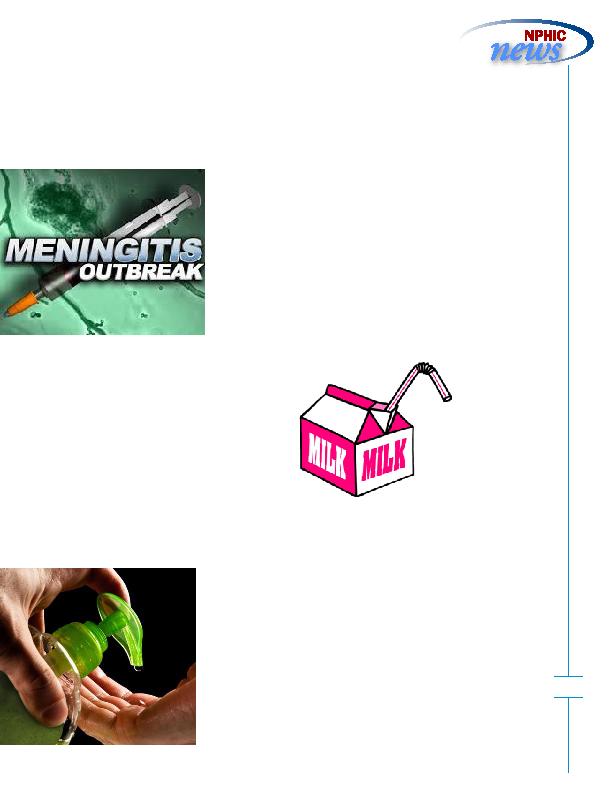
compounding pharmacies, which create new drug combinations
or alter drugs. Under the Drug Quality and Security Act that
into law in
November, these
pharmacies
are being
encouraged to
register with
the FDA. The
agency will then
classify them
as "outsourcing
pharmacies"
practices." In order to spur registration, FDA plans to encourage
hospitals and other health-care providers to purchase
compounded drugs only from FDA-registered companies.
outbreak of fungal meningitis stemming from tainted lots of
injectable steroid medication from the now-closed New England
Compounding Center in Massachusetts. More than 60 died and
750 were sickened during the 20-state outbreak.
required to prove through clinical studies that their products are
safe and more effective than plain soap and water in preventing
another proposed
rule. If companies
fail to do so,
their products
would need to be
reformulated or
relabeled to remain
on the market.
extensive exposure
be a clearly demonstrated benefit from using antibacterial soap
to balance any potential risk," said Dr. Janet Woodcock, director of
FDA's Center for Drug Evaluation and Research.
used in antibacterial products--for example, triclosan (liquid
soaps) and triclocarban (bar soaps)--could pose health risks,
such as bacterial resistance or hormonal effects. Studies in rats
have shown a decrease in thyroid hormones with long-term
exposure.
Council, according to reports. The proposed rule does not affect
hand sanitizers or wipes whose active ingredient is alcohol.
require larger food businesses in the U.S. and abroad to take steps
adulteration of
the food supply.
Fluid milk storage,
handling and
loading appear to
pose a significant
vulnerability
to terrorist acts
intended to cause
proposed rule, operations with $10 million or more in sales
would be required to complete and maintain a food-defense plan
identifying vulnerabilities and protecting against them. Facilities
would need to establish monitoring procedures and corrective
actions, verify that the system is working, and ensure that
personnel assigned to the vulnerable areas receive appropriate
training.
attempt to cause large-scale public health harm," said FDA's
Michael Taylor. "Such events, while unlikely to occur, must be
taken seriously because they have the potential to cause serious
public health and economic consequences. The FDA's goal is to
devise an approach that effectively protects the food supply in a
practical, cost effective manner."